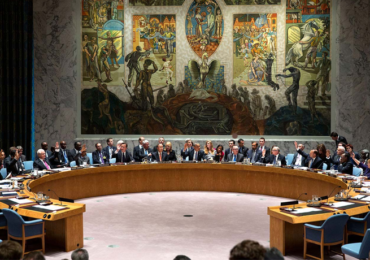By Alazar Feleke
The 1902 Treaty has often been referred to a Treaty between Ethiopia and Egypt and that this treaty addressed the use of the Nile Waters. It should be noted that such a treaty did not exist between Ethiopia and Egypt. In fact, the treaty that was being discussed was between Ethiopia and Great Britain. At that time, Egypt was a protectorate of the British Empire and the Egyptian government of the time cannot make international treaties.
The 1902 treaty was drafted primarily to establish the borders between Ethiopia and the Sudan. At that time, the Sudan was under British rule. This treaty took many years to draft and negotiate and while the borders for the countries were central reason for the treaty, the Nile, or the use of the Nile water, was not.
Only one of the articles, Article III of this 1902 treaty discussed the use of the Nile waters. The English version, as reviewed by Britain, read: “His Majesty the Emperor Menilik II, King of Kings of Ethiopia, engages himself towards the Government of His Britannic Majesty not to construct or allow to be constructed any work across the Blue Nile, Lake Tana, or the Sobat, which would arrest the flow of their waters except in agreement with His Britannic Majesty’s Government and the Government of Sudan.” However, the Amharic version, did not oblige Ethiopia to seek permission from the British Government. This has an eerie similarity to the misrepresentation of Ethiopia’s position under the Wuchale Treaty that led to the Battle of Adowa.
According to scholars who have studied this agreement, Ethiopia has a valid and natural rights to the Nile waters. Ethiopia’s rights “… in a certain share of the waters in its own territory are undeniable…” This fact would be sufficient for invalidating the agreement, which have no counterpart in favor of Ethiopia.
There are plenty of arguments that have been presented that suggest reasons why Ethiopia is not bound by the 1902 treaty between Ethiopia and the British empire. One such reason is that the English and Amharic versions of the treaty were not ratified because the English and Amharic versions did not align in context. While the English version was eventually signed by the British Empire, the Amharic version was held back by Emperor Menilik. In fact, the Emperor was so concerned about the context that he sent his Swiss Advisor, Alfred Ilg to add clarifications in the English version. Ilg was never able to get these clarifications inserted. Later, Ras Tafari worked on gaining clarity on this treaty, however, when the Italians invaded Ethiopia, the effort was put on hold. In the 1950’s the Ethiopian government officially rejected the treaty since the official signatory, Britain had violated the terms of the agreement repeatedly in its support of the Italian invasion of 1936.
Lastly, in the English version of the 1902 treaty, the treaty did not prohibit Ethiopia from using the Nile, but it does “oblige” Ethiopia not to arrest the Nile. This could be interpreted to mean that the request was to not restrict the river flow completely. In that case, even the 1902 treaty had language that supports the use of dams if the water flow is not interrupted. Ethiopia has repeatedly stated that it has no plans to block the flow of water of the Nile, as its goal is to have an equitable and fair share of the use of the Nile across all riparian countries.
Image credit: Tsehai Publishing and Selamta Magazine

Alazar Feleke
P.E., PMP



